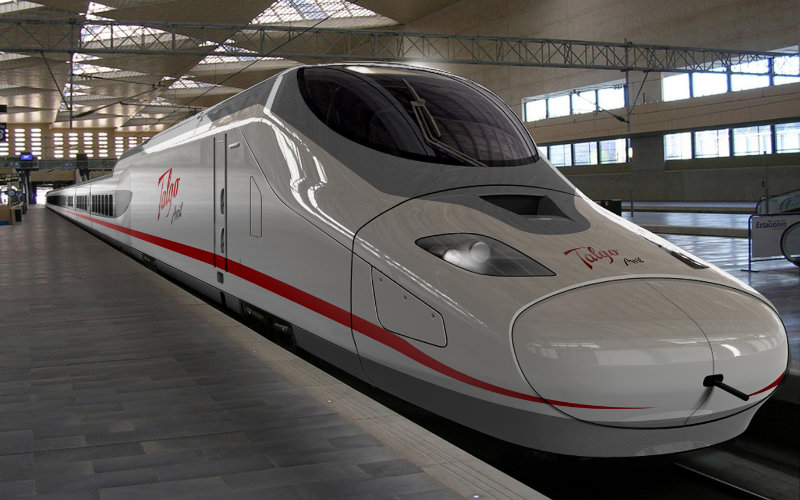Spanish Rail Firm Talgo Eyes Morocco’s $839 Million High-Speed Train Tender for 2030 World Cup

The railway construction company Talgo would like to participate in the tenders that Morocco is about to launch to strengthen its high-speed network, in preparation for the 2030 World Cup that it is co-organizing with Spain and Portugal.
Talgo wants to obtain contracts from Morocco, which aims to improve its rail network in view of the 2030 World Cup, confirm sources to La Información. Morocco will soon launch a tender for 839 million euros to purchase 120 trains. The Deputy Managing Director of the National Railways Office (ONCF), Mohamed Semmuni, had announced in June that the Spanish companies Talgo and CAF, as well as Alstom and seven other companies including Chinese and Japanese, had expressed interest in this market.
The winner of this tender will have to set up a factory in Morocco where these trains will be manufactured with local labor. These trains must be capable of reaching speeds of around 200 kilometers per hour. Talgo wants to offer the kingdom two of its products: the Avril high-speed train and the EMU light train for suburbs and regions, which can reach 160 kilometers per hour. The first has just received final authorization for circulation in Spain, while the second is not yet in service.
The managing director of the Moroccan Institute of Family Business and former director of the Morocco-Spain Economic Council, Houda Benghazi, recently stated that "Spain and Morocco will build the trains we will use during the World Cup. Yes, it’s a tender, but I’m sure my country will act intelligently with the Spaniards, and not with the Japanese." To recall, it was French companies that carried out in 2018 the first high-speed line in the kingdom connecting Tangier to Casablanca.
But the tense relations between Rabat and Paris do not facilitate a partnership for the realization of the projects under study, which also plan the extension of the network towards Marrakech and Agadir, and that of the conventional rail network by an additional 3,800 kilometers. However, Spanish companies could face strong competition from German and especially Chinese companies. The China Railway Design Corporation, which built the Mohammed VI Bridge in Rabat, was entrusted in July with the feasibility studies for the second high-speed line in the kingdom.
Related Articles
-

Tangier’s Last Urban Forest Threatened: Luxury Resort Plan Sparks Environmental Showdown
13 September 2025
-

Declassified: 1978 Swiss Memo Exposes Algeria’s Secret Plot to Destabilize Morocco and Mauritania
13 September 2025
-

Drug Baron’s Light Sentence Sparks Appeal: Attempted Murder Charges Resurface
13 September 2025
-

Rabat’s Housing Market Defies National Trend with Surprising Q2 Surge
13 September 2025
-

China’s Yutong Bus Scores Record-Breaking Deal: 723 Buses for Morocco’s Africa Cup
13 September 2025